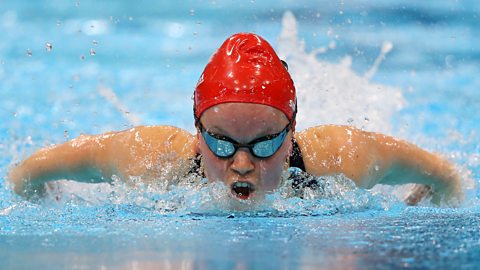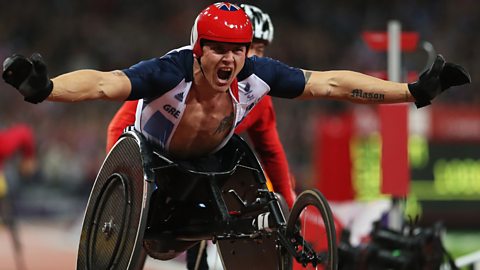Disability
There are around 11 million people in the UK who have a disability. This includes people with physical, visual and hearing impairments and people with learning difficulties. The participation of disabled people in sport is significantly lower than that of non-disabled people, for all age groups.
This is due to:
- physical barriers ā for example, a lack of or the cost of adapted equipment
- logistical ā for example, a lack of transport or inappropriate communication
- psychologicalRelating to the mind, eg mental attitude and personality. ā for example, lack of confidence, other people's attitudes
Many sports and physical activities do ensure inclusionMaking sure that everyone can take part. of disabled people. Inclusion requires staff and volunteers to have a positive attitude, communicate effectively and be able to adapt activities.
Taking part in sport
Disabled people take part in sport in a range of ways ā with non-disabled participants and/or with other disabled people. Individuals should be able to choose and change how they participate.
Sports and physical activities can be adapted by changing:
- where it is done ā for example, a shorter distance, lower net, court with zones
- how it is done ā for example, two bounces before you hit the ball, roll instead of throw
- what is used ā for example, a bell-ball, a flag instead of a whistle
- who does what ā for example, uneven teams ā 6v4, a guide runner
To compete at national and international level, disabled sportspeople have a classification system. Classifications reflect the demands of the sport and a disabled person's functional abilityThis is based on what a disabled person can do and is usually evaluated by a physiotherapist.. This allows disabled performers to compete fairly against other performers with the same classification.
Question
A swimming club insists that all members have to be able to perform a racing dive before they can join the freestyle swimming squad. What type of barrier is this for disabled swimmers?
Psychological ā this simply requires a change of attitude by the club as race diving is not an essential skill for competitive freestyle swimming. (Some Paralympians start the race in the water, depending on their classification.)
The Paralympic Games
The Paralympic Games is the biggest multi-sport event for disabled athletes in the world. At the London 2012 Games, 4,200 athletes from 160 countries took part in 20 sports. The Games take part every four years and are organised by the International Paralympic Committee. There are both summer and winter events. In the UK, athletes take part as ParalympicsGB.
The Paralympic movement has changed the perception of disabled people. For example, there is more reporting of disability sport in the media and disabled performers have a much higher profile than before. Some disabled sportspeople train and compete with their non-disabled peers. However, people with learning difficulties and deaf people do not participate in the Paralympic Games. They have their own events and there is still relatively low awareness of their participation.
Paralympians raising the game for all
Ellie Simmonds OBE ā swimmer
Ellie is a four-time Paralympic champion. She made her debut at Beijing in 2008 and won two gold medals and broke two world records at the London 2012 Games. She was awarded an OBE in 2013. Ellie has achondroplasia dwarfism.
Ellie is one of the most recognised Paralympians and uses her success to campaign for more and better sports opportunities for young disabled people.

David Weir CBE ā wheelchair athlete
London 2012 was David's fourth Paralympic Games and he won four gold medals to add to his collection. He competes regularly in the London Marathon, which he won for a record-equalling sixth time in 2012. David is a T54 athlete. This is the specific classification for disability athletes. The classification varies according to factors such as muscle strength, range of movements and amputations.
David is passionate about raising the profile of Paralympic sport so established the Weir Archer Academy to coach up-and-coming wheelchair racers.
